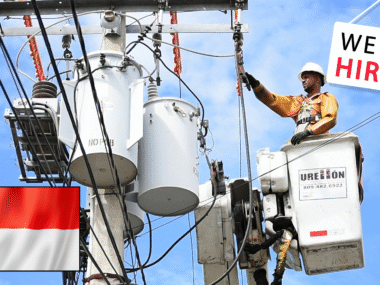Learn the step-by-step process to obtain a UK Marriage Visitor Visa or Fiancé(e) Visa for foreigners in 2025, with eligibility and requirements.
Introduction
For foreigners planning to marry in the United Kingdom or join a spouse already settled there, navigating the UK’s immigration system is essential. The UK offers specific visa options, such as the Marriage Visitor Visa and the Fiancé(e) Visa, tailored to different circumstances depending on whether the couple intends to stay in the UK after marriage.
This guide provides a comprehensive, step-by-step explanation of how foreigners can secure a marriage-related visa in the UK in 2025, covering eligibility, requirements, application processes, and key considerations. By understanding these pathways, applicants can make informed decisions to ensure compliance with UK immigration rules and achieve a successful outcome.
Related Post:
- How to Get a Marriage Visa in Singapore for Foreigners
- How to Get a Marriage Visa in Norway for Foreigners
- How to Get Marriage Visa in Luxembourg for Foreigners
- How to Get a Marriage Visa in the United States for Foreigners
Understanding UK Marriage Visa Options
The UK provides two primary visa types for foreigners intending to marry or join a partner: the Marriage Visitor Visa and the Fiancé(e) Visa (under the Family Visa category). Each serves a distinct purpose based on the couple’s plans post-marriage.
Marriage Visitor Visa
The Marriage Visitor Visa is designed for foreign nationals who wish to marry or enter a civil partnership in the UK but plan to leave within six months. This visa does not allow the holder to settle in the UK or switch to another visa type while in the country. It is suitable for those who intend to return to their home country after the ceremony.
Fiancé(e) Visa
The Fiancé(e) Visa is for individuals planning to marry a British citizen or a person with settled status (e.g., Indefinite Leave to Remain or EU Settled Status) and remain in the UK afterward. This visa allows a six-month stay to complete the marriage, after which the applicant can apply for a Spouse Visa from within the UK to continue living with their partner.
Key Differences
-
Intent to Stay: The Marriage Visitor Visa requires the applicant to leave the UK after six months, while the Fiancé(e) Visa allows transitioning to a Spouse Visa for long-term residency.
-
Eligibility: The Marriage Visitor Visa is open to those marrying anyone, including non-UK residents, while the Fiancé(e) Visa requires a partner who is a British citizen or has settled status.
-
Work Restrictions: Neither visa permits work in the UK, but the Fiancé(e) Visa allows switching to a Spouse Visa, which permits employment.
Eligibility Criteria for a Marriage Visitor Visa
To qualify for a Marriage Visitor Visa, applicants must meet specific requirements set by the UK Home Office:
-
Age Requirement: Applicants must be at least 18 years old.
-
Genuine Relationship: Applicants must prove they are in a genuine relationship with their partner and intend to marry or enter a civil partnership within six months of arriving in the UK. Evidence includes venue bookings, wedding plans, or correspondence.
-
Intention to Leave: Applicants must demonstrate they will leave the UK within six months and not attempt to settle or make the UK their main home through frequent visits.
-
Financial Sufficiency: Applicants must show they can support themselves during their stay without accessing public funds, including covering the cost of their return journey.
-
Prohibited Activities: Applicants must not engage in paid work, study (beyond permitted short courses), or claim public benefits.
-
Previous Relationships: If previously married or in a civil partnership, applicants must provide evidence that the relationship has formally ended (e.g., divorce decree or death certificate).
Individuals with settled or pre-settled status under the EU Settlement Scheme, pending EU Settlement Scheme applications, or eligibility for British citizenship do not need this visa.
Eligibility Criteria for a Fiancé(e) Visa
The Fiancé(e) Visa has stricter requirements, as it is a pathway to long-term settlement in the UK:
-
Age Requirement: Both the applicant and their UK-based partner must be at least 18 years old.
-
Partner’s Immigration Status: The UK-based partner must be a British or Irish citizen, hold Indefinite Leave to Remain, have EU Settled or Pre-Settled Status, or possess refugee or humanitarian protection status.
-
Genuine Relationship: Applicants must provide evidence of a genuine and subsisting relationship, such as communication records, photos, or joint travel history.
-
Intention to Marry: The couple must plan to marry or enter a civil partnership within six months of the applicant’s arrival in the UK at a licensed venue.
-
Financial Requirement: The UK-based partner must meet a minimum income threshold of £29,000 per year (as of 2025) or have cash savings of at least £88,500. Income can come from employment, self-employment, pensions, or other specified sources.
-
English Language Proficiency: Applicants must demonstrate English proficiency at CEFR Level A1 (speaking and listening) through an approved test, an academic qualification taught in English, or an exemption (e.g., based on age or nationality).
-
Accommodation: The couple must prove they have suitable accommodation in the UK that is not overcrowded and meets legal standards.
-
Tuberculosis (TB) Test: Applicants from certain countries must provide a medical certificate confirming they are free from TB.
Application Process for a Marriage Visitor Visa
The application process for a Marriage Visitor Visa is straightforward but requires careful preparation:
-
Complete the Online Application: Submit the Marriage Visitor Visa application through the UK Visas and Immigration (UKVI) website from outside the UK. Save the form if needed to complete it later.
-
Gather Required Documents: Provide a valid passport, proof of relationship (e.g., venue bookings, wedding plans), evidence of funds (e.g., bank statements), and proof that previous relationships have ended, if applicable. Non-English documents must include certified translations.
-
Book a Visa Appointment: Schedule an appointment at a visa application centre in the applicant’s home country to submit biometrics (fingerprints and photograph).
-
Pay the Fee: The application fee is approximately £115 (check the latest fee on GOV.UK). Priority services (£500 for a 5-day decision or £1,000 for a 24-hour decision) may be available.
-
Attend the Appointment: Submit documents and biometrics at the visa centre. Keep relevant documents in hand luggage for border checks.
-
Await a Decision: Decisions typically take three weeks, though priority services can expedite this.
Application Process for a Fiancé(e) Visa
The Fiancé(e) Visa application is more complex due to its long-term implications:
-
Verify Eligibility: Confirm that both partners meet the age, relationship, financial, and accommodation requirements.
-
Collect Evidence: Gather documents, including passports, marriage plans, proof of relationship (e.g., photos, chat logs), financial documents (e.g., payslips, bank statements), accommodation details, and English test results or exemptions. Include TB test results if required.
-
Submit the Online Application: Apply through the UKVI website from outside the UK. The application requires detailed information about the couple’s relationship and plans.
-
Pay Fees: The application fee is approximately £1,938 (as of April 2025 for out-of-country applications). The Immigration Health Surcharge (£1,560) may also apply.
-
Attend a Visa Centre Appointment: Submit biometrics and documents at a visa application centre. Self-upload documents if preferred, following UKVI guidelines.
-
Await a Decision: Processing typically takes 12 weeks, but the Super Priority Service (£800) can reduce this to the next working day in some cases.
Key Documents for Both Visas
Both visa types require robust documentation to prove eligibility:
-
Passport: A valid passport or travel document.
-
Relationship Evidence: Venue bookings, communication records, photos, or affidavits from friends/family for the Marriage Visitor Visa; marriage plans, joint documents, or travel evidence for the Fiancé(e) Visa.
-
Financial Proof: Bank statements or payslips to show self-sufficiency (Marriage Visitor Visa) or the £29,000 income/savings threshold (Fiancé(e) Visa).
-
Previous Relationship Evidence: Divorce decrees or death certificates, if applicable.
-
English Proficiency: CEFR A1 test results or academic qualifications (Fiancé(e) Visa only).
-
Accommodation Details: Tenancy agreements or property documents (Fiancé(e) Visa).
-
TB Test Results: For Fiancé(e) Visa applicants from specified countries.
All non-English documents must be accompanied by certified translations.
Common Pitfalls and How to Avoid Them
-
Incorrect Visa Type: Applying for a Standard Visitor Visa to marry is not permitted and can lead to refusal or deportation. Confirm the correct visa based on post-marriage plans.
-
Insufficient Evidence: Weak proof of a genuine relationship can result in refusal. Provide diverse, dated evidence like communication logs, photos, and third-party statements.
-
Financial Shortfalls: For the Fiancé(e) Visa, failing to meet the £29,000 income or £88,500 savings threshold is a common issue. Explore combined income sources or seek legal advice for exemptions.
-
Missing Deadlines: Apply early, as processing can take weeks. Ensure all documents are up-to-date and complete.
-
Immigration History: Previous visa overstays or breaches can lead to refusal. Be transparent and address any issues with professional help.
After the Marriage: Next Steps
-
Marriage Visitor Visa: After the ceremony, the visa holder must leave the UK within six months. To return as a spouse, apply for a Spouse Visa from their home country.
-
Fiancé(e) Visa: After marrying within six months, apply for a Spouse Visa from within the UK. This visa lasts 33 months (30 months if applied for in the UK) and allows work and study. After five years, applicants may qualify for Indefinite Leave to Remain (ILR), followed by British citizenship after 12 months.
Tips for a Successful Application
-
Seek Professional Advice: Immigration solicitors can clarify requirements and assist with complex cases, especially if financial or relationship evidence is weak.
-
Plan Ahead: Book the ceremony at a licensed venue and gather evidence early to avoid delays.
-
Check GOV.UK: Always verify fees, processing times, and requirements on the official UKVI website.
-
Maintain Transparency: Disclose all relevant information, including past immigration issues, to avoid refusals.
Conclusion
Obtaining a UK marriage visa as a foreigner requires careful planning and adherence to Home Office rules. The Marriage Visitor Visa suits those leaving after the ceremony, while the Fiancé(e) Visa is ideal for couples planning to settle in the UK.
By meeting eligibility criteria, preparing thorough documentation, and avoiding common pitfalls, applicants can navigate the process successfully. For complex cases, consulting an immigration lawyer can provide clarity and increase approval chances. Start early, stay informed, and take the first step toward your UK marriage journey with confidence.






